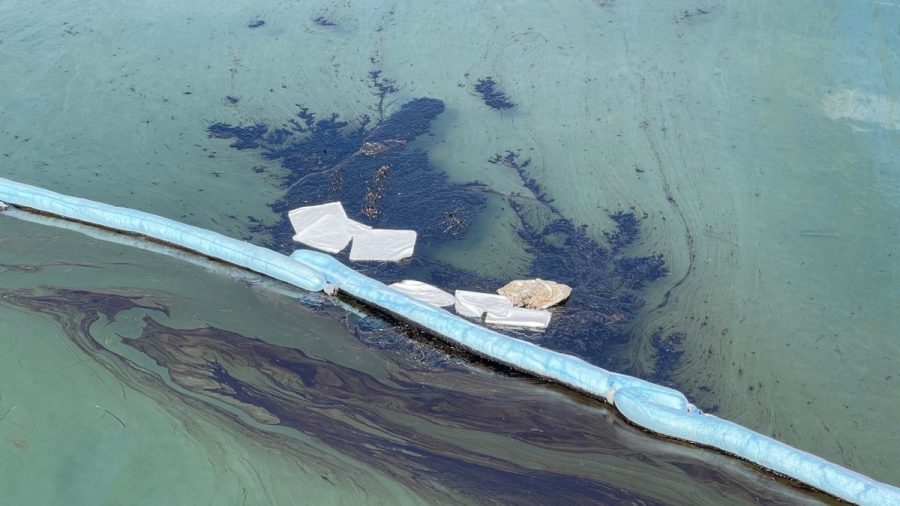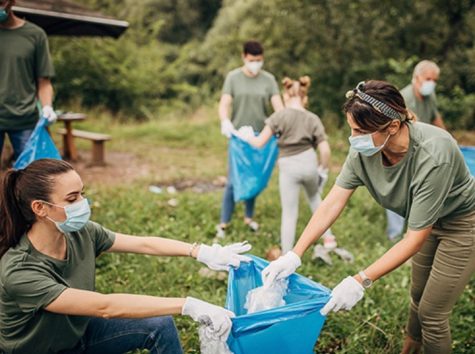From blue to black
Looking out into the ocean, Californians watch as black pollution invades the deep blue water. On Friday, Oct. 1, residents and boaters of Newport Beach reported a petroleum smell in the air, leading to an investigation and later the official confirmation of an oil spill.
Off the coast of Orange County in Southern California, a pipeline leak spilled an estimated 25,000 gallons of crude oil into the ocean. The size of the spill was significantly smaller, only 132,000 gallons than what officials originally predicted. Investigators traced the leak back to an independent company pipeline belonging to Houston-based Amplify Energy.
“Officials said the cause of the leak remains under investigation, but the pipeline was likely damaged by a ship’s anchor several months to a year before it ruptured,” NPR News said in an article.
Crude oil is a naturally occurring fossil fuel beneath the Earth’s crust, and this particular type of oil mixes with the sand to create tar balls that wash up on beaches. This type of oil is what is affecting the ecosystem off the coast. As a result, authorities are using mechanical equipment called skimmers to collect the substance on the water surface in attempts to clean it up. To take care of the debris, cleanup crews have been inspecting beach areas, and set up booms, temporary floating barriers, to contain the spill.
“Contractors in small boats deployed the skimmers and booms hoping to keep more oil from getting into the wetland Talbert Marsh in Huntington Beach,” AP News said in an article.
Unfortunately, this environmental disaster affects wildlife. For example, even if birds are not physically covered in the oil, exposure through diet or physical contact can severely damage their health. In addition, many fishing grounds were closed in coastal areas the spill affected. Officials have already started to find dead animals washed up on beaches.
“I feel so bad for all of the animals in danger due to the spill, and I hope that clean-up is making a difference for many of their lives,” Makhenna Knight, sophomore, said.
Although students are unable to volunteer in the cleanup, they can make a donation to an Oil Spill Emergency Response Fund to support the wildlife affected.

Hi! My name is Grace, and I am a senior at Etowah. As my fourth year on the staff, I am the Head of Social Media and Marketing for The Talon. I am a part...






